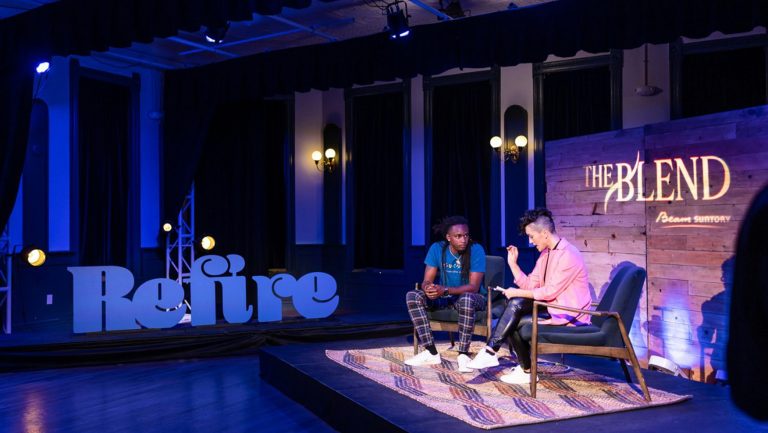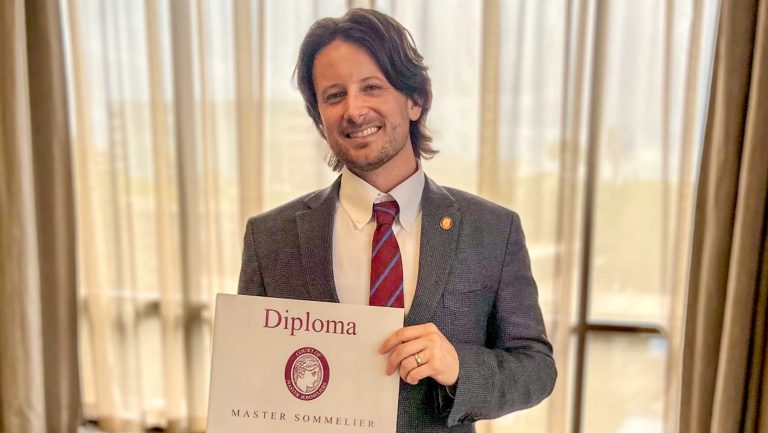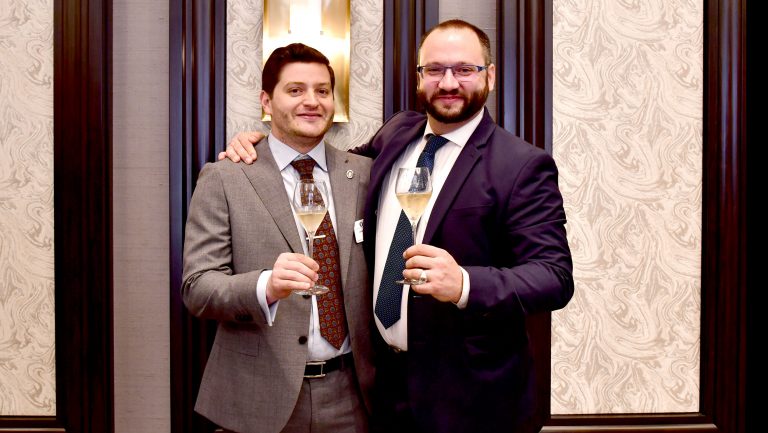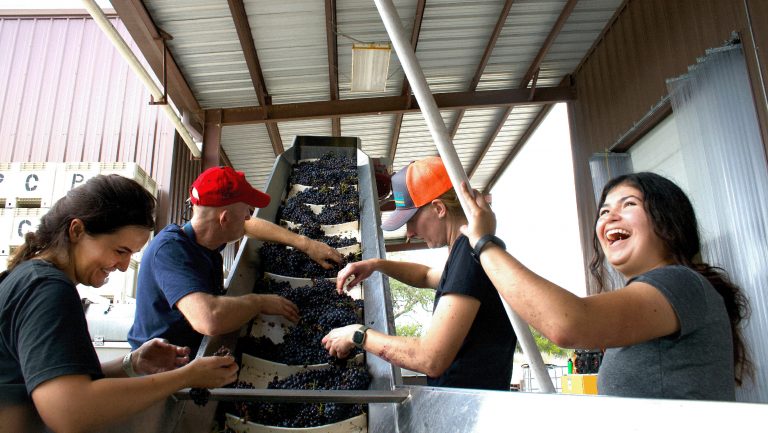When Pernod Ricard launched BarSmarts Advanced in 2008, attendees were required to pass an online course before attending a daylong seminar where industry notables like David Wondrich and Steve Olson offered spirits tastings and lessons in the fundamentals of drink-making. Now, 15 years, more than 155,000 registrants, and one global pandemic later, it looks quite different. This past July, the company rolled out a new version of BarSmarts. Existing now as an online-only platform, it’s changed its focus and philosophy.
“There’s been a fundamental shift in emphasis away from instructors and gatekeepers to ‘let’s talk about the bartender community,’” says Kevin Denton, the head of mixology and education at Pernod Ricard. The pandemic, he notes, caused a brain-drain from the industry, and now there’s new work to be done. “This iteration is largely about people coming to the industry. We need new talent to join up.”
Now the program, which costs $29, puts a premium on career development as much as—if not more than—the intricacies of spirits production and drink-making. To that end, Denton added a global job board with open roles highlighted geographically. Participants can create a profile for potential employers to see. To get participants thinking about philosophical approaches to their work, Denton licensed videos from The Welcome Conference, restaurateur Will Guidara’s daylong TED Talk-esque industry symposium featuring industry luminaries offering their thoughts on hospitality and diversity.

Don’t miss the latest drinks industry news and insights. Sign up for our award-winning newsletters and get insider intel, resources, and trends delivered to your inbox every week.
A Cultural Change Long Coming
Other companies are changing their education programs for the times, too. Campari Academy began in 2019 with small-scale, in-person bartender trainings, but when the pandemic shuttered bars in 2020, they launched the first digital version of the program. Then, last year, they introduced a fully-fledged website and online training platform.
Diageo Bar Academy, which has trained over one million bar professionals in-person since it launched 11 years ago, quickly restructured its program due to the COVID-19 lockdowns. Within a week, they delivered over 300 virtual sessions to more than 31,500 participants in more than 30 countries, according to Cassandra Ericson, Diageo North America’s manager for on-premise channel marketing.
“During the pandemic we pivoted Diageo Bar Academy to support our on-trade customers as they faced unprecedented disruption and closure, and helping them to prepare for reopening and recovery,” says Ericson. “We ran community activities online to connect the community and lift the spirit; we provided valuable resources for business initiatives, but also how to optimize their business operations in preparation for the reopening.”
But in many cases, change meant brands adding education programs to their agenda—and budget—for the first time. It should be noted that the platforms were in the works before COVID-19, not as a reactive measure to aid a community in crisis. That speaks to how even before the pandemic, the industry was starting to come to terms with and talk about long-unaddressed topics, like mental health, diversity, and the democratization of the industry to facilitate broader access. Companies noticed that bartenders needed a lift—call it a shot of morale—not just technical skills. The pandemic made it more urgent.
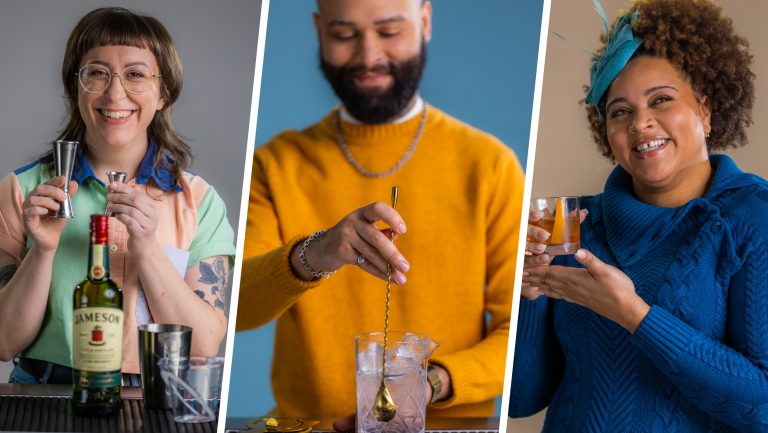
Moving Beyond Bar Skills
William Grant took that approach when it launched Monkey Business Academy, the free educational platform for Monkey Shoulder Blended Malt Scotch, in 2021. The one-day program encompasses menu-building skills, practical fix-it tricks (like how to unclog a sink), networking opportunities, and lessons in personal branding. Participants also leave with a professional headshot.
Brand ambassador Anna Mains, who developed Monkey Business, says it’s critical that bartenders create an online presence while staying true to their own personality, not least because bartending is a personality-driven career. Monkey Shoulder recruited leading industry figures like Katana Kitten managing partner and bartender Masa Urushido and Attaboy manager Haley Traub to engage with participants directly. Equally important, though, Mains says, is that participants network with each other.
Bacardi also puts notable bartenders front and center in its new program, Future Proof, a continuation of Bacardi’s relationship with the Chaplin School of Hospitality & Tourism Management at Florida International University, costing $99 (though the company emphasizes that it is committed to making the program accessible to interested individuals through discounts). Jim Meehan and Steve Schneider are among the well-known bar figures to be featured in Future Proof. Aiden Biggs, the advocacy director for Bacardi North America, says giving new bartenders an opportunity to interact with top talent can not only inspire them to commit to a career, but offers them a sense of how high they can go in the industry.
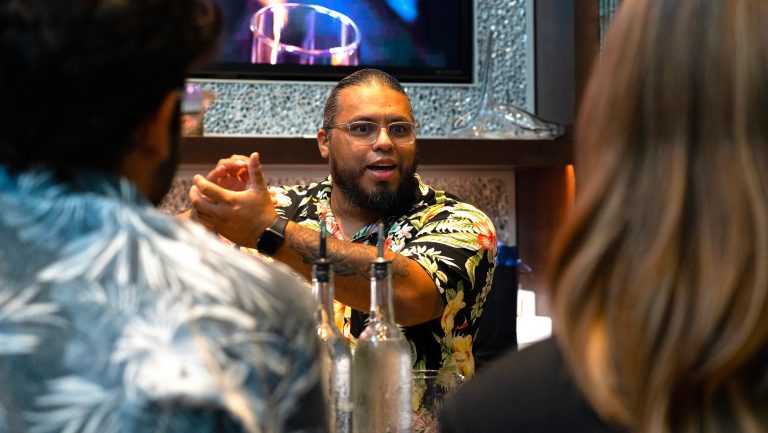
Supporting a New Generation
In fall of 2020, Beam Suntory launched its education platform, The Blend. The online hub encompasses educational content, mentorship, and community and is an evolution of a Suntory initiative, Club Suntory, from the 1970s. It’s free to create an account. Jesse Maguire, who manages The Blend, sees it both as a professional-development support system and a valuable resource in this moment of industry seachange. As a new generation steps up in a business rooted in personal interactions, the industry as a whole is navigating the myriad of new ways available to connect with others.
“Not only do they have new perspectives that will shape the way our industry evolves, but they’re coming to the industry at an inflection point,” says Maguire. “While the on-premise has seen a strong return, we know that the hospitality industry is still facing a lot of challenges. And those who are new may not be as experienced in navigating these challenges.”
Everyone who was reached for this article noted that their program was designed to be brand-agnostic. But it’s not hard to assume that if a bartender gains early and valuable training from a brand or suite of brands, the emotional connection to the company will endure and a sense of loyalty with it.
“The spirits business is a relationship business,” says Mains. “An education platform can offer skills and while everything a bartender learns might not be immediately used or immediately visible, it’s a process of building a loyalty and relationship to the brand. So we hope when bartenders think about who helped them build their career, they’ll remember that Monkey Shoulder holds a special place.”

Dispatch
Sign up for our award-winning newsletter
Don’t miss the latest drinks industry news and insights—delivered to your inbox every week.
Liza Weisstuch is a New York City-based journalist whose work has appeared in The New York Times, The Washington Post, The Daily Beast, Bon Appetit, Robb Report, and The Wall Street Journal, among others. She is the U.S. contributing editor to Whisky Magazine. You can reach her on Instagram (@livingtheproof) and X (@livingtheproof)


